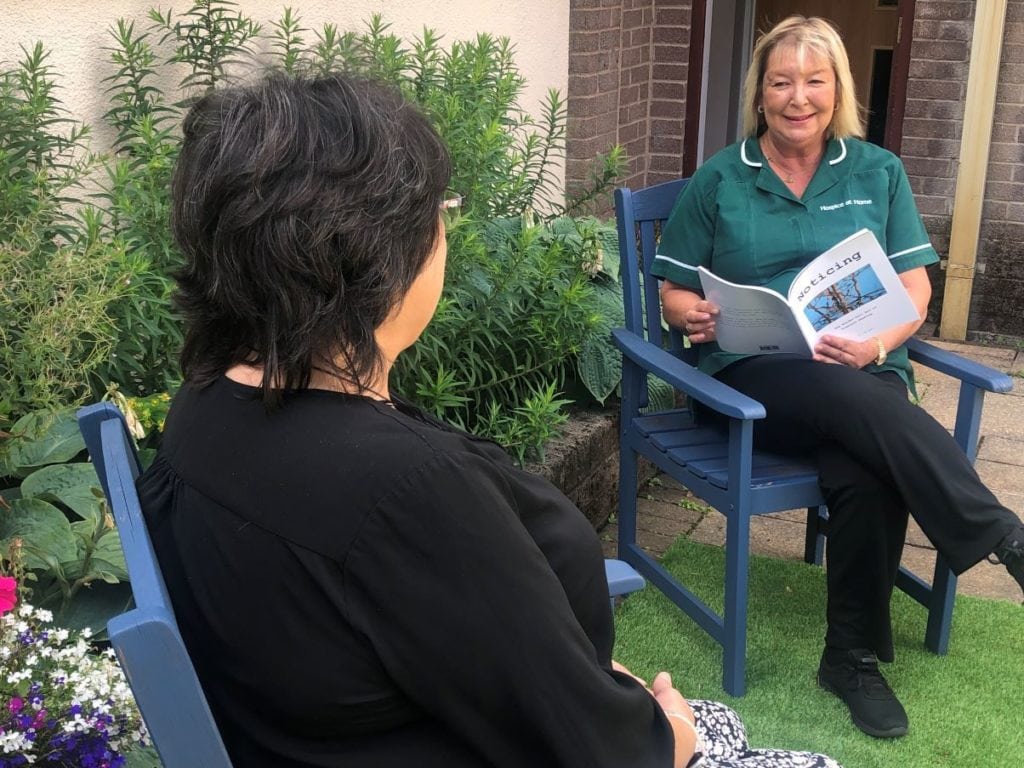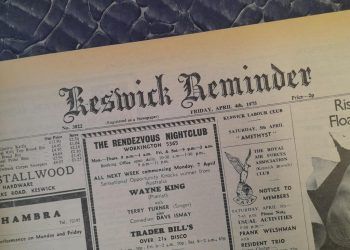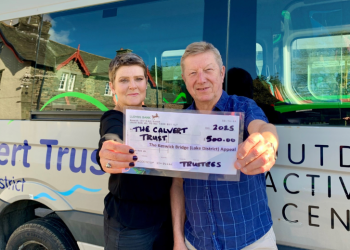
Our appeal for Hospice at Home Carlisle and North Lakeland has already raised almost £9,000 – and we need your help to get us to our £10,000 target.
This vital service, which has helped thousands of people across the area, needs you.
Every penny counts to help this charity continue its work – despite being an integral part of the healthcare system, it is not funded by the NHS.
Whatever you can donate will help it thrive and offer myriad services to the people of Cumbria.
Here, we meet Libby Stobart, who was inspired to train as an occupational therapist by her family’s experience.
It was her father dying in 2005 that influenced Libby’s decision to train as an occupational therapist .
He had suffered from pulmonary fibrosis for some time and had been in and out of hospital several times, until the doctors decided there was no further medical treatment he could be given.
Her father came home to die and Libby recalls at the time she felt very alone and vulnerable, as she wasn’t aware that he was approaching the end of his life.
However she soon realised just how poorly he was and in fact he died 15 hours after getting home with Libby and her mother present.
“I was heartbroken when dad died, but glad he had been able to come home,” said Libby, but added that there didn’t seem to be a lot of support.
Libby undertook a part-time degree, despite being “unsure where it would lead”.
But her father’s death provided the impetus she needed to pursue her career with a passion and to ultimately work with patients with palliative and end of life care needs whilst also supporting their families.
The 56-year-old mother-of-two started working with the charity in March 2015, and has become a key member of the team.
As an OT working with individuals with palliative and end of life care needs, she provides holistic care, which includes physical and practical help, emotional and psychological support to ensure their quality of life is maintained and help them to achieve their goals.
Using techniques such as relaxation, mindfulness, fatigue and breathless management makes a difference to patients’ quality of life.
An example of this is when a patient is breathless they are often anxious as well, making everyday activities more difficult.
Supporting them with a programme of different techniques to manage their fatigue and breathlessness in turn relieving the anxiety rebuilds their confidence and independence.
Libby’s patients are aged 18 and over – the oldest patient she has cared for was 100. She and her colleague can carry out up to 30 visits a week.
Importantly, the service continued through the pandemic to patients who were often more isolated than in normal circumstances.
Often people say to Libby “it must be incredibly depressing work” but in fact she feels it is the total opposite.
“It is such a privilege and an honour to get to know someone at that stage of their life and I learn something new from every single patient and their families on a frequent basis,” she said.








